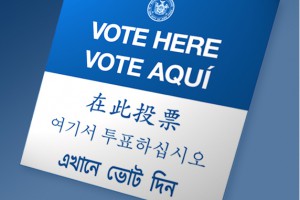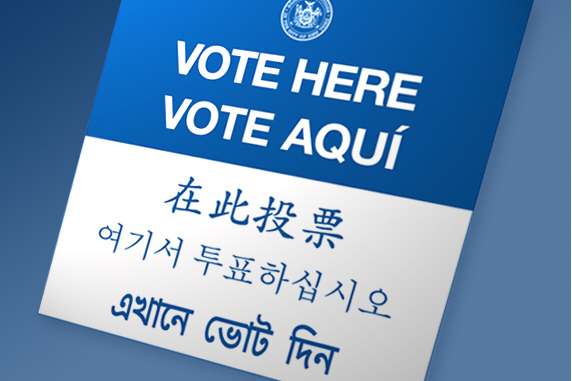 In the early history of the United States, many states and territories allowed noncitizens to vote in some or all elections. New York allowed noncitizen voting from 1776-1804 and the New York City Council has recently reconsidered the question for municipal elections.
In the early history of the United States, many states and territories allowed noncitizens to vote in some or all elections. New York allowed noncitizen voting from 1776-1804 and the New York City Council has recently reconsidered the question for municipal elections.
The vast majority of noncitizen residents work and pay taxes–in addition to being human beings with inviolate, inherent dignity–and so to many it makes sense that they have some representation in government and access to public benefits. Unfortunately, due to a case that the Supreme Court has taken up, we might be moving in the opposite direction of that vision.
SCOTUS has agreed to hear the case of Evenwel v. Abbott in which the plaintiff, Titus County (TX) Republican Party Chair Sue Evenwel has claimed that we should calculate state legislature representation and districts by counting only registered voters. That would eliminate counting foreign noncitizens, felons, children and others who are ineligible to vote.
The logic of Evenwel’s claim is that a voter who lives in a district with a high proportion of nonvoters (such as many urban areas) is unfairly overvalued in our current system. That violates the “one-person-one-vote” principle for legislative bodies established by the 14th Amendment’s Equal Protection Clause.
That argument completely dismisses the value of noncitizens (and other nonvoters) as human beings. They would go from not having a vote to entirely disappearing for all electoral purposes, in spite of the fact that we are talking about children, business-owners, workers, taxpayers and people who contribute to their communities in myriad ways. It is a callback to the days of the Three-Fifths compromise, when an African American slave counted as only 3/5 of a human being toward a southern state’s representation in government.
Practically speaking, if Evenwel wins then there will be a power shift in state government representation from urban to suburban districts, and from the Democratic Party to the Republican Party. Evenwel is being represented by Edward Blum, an operative for the neo-conservative American Enterprise Institute and president of the Project on Fair Representation, which won the Supreme Court case to eliminate the federal government’s ability to enforce the Voting Rights Act of 1965.
There is strong court precedent for allowing states to count all people when deciding districts. In fact, legal scholars were surprised that SCOTUS took up this case at all. But the Voting Rights Act case demonstrated that the Roberts Court has no problem flouting precedent to undermine the representation of marginalized people. Anyone who thinks Republicans genuinely care about “states’ rights” needs to consider why they are attacking states’ discretion on how to count people toward electoral representation.
Evenwel v. Abott only applies to state legislatures, and so implementing noncitizen voting for state and local offices could mitigate the effects of a victory for Evenwel, while at the same enfranchising valued community members. However, a decision in favor of counting only registered voters could easily be used as precedent to immediately file a similar court case regarding federal offices. That would result in a further rightward shift in the House of Representatives and the electoral college, and New York state would lose representation in both. Arguments for Evenwel v. Abott will begin in October.
